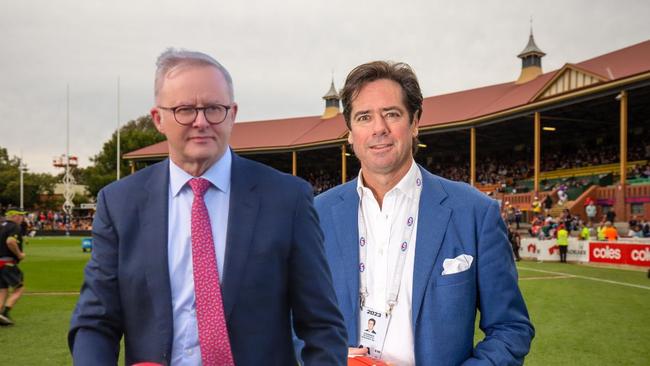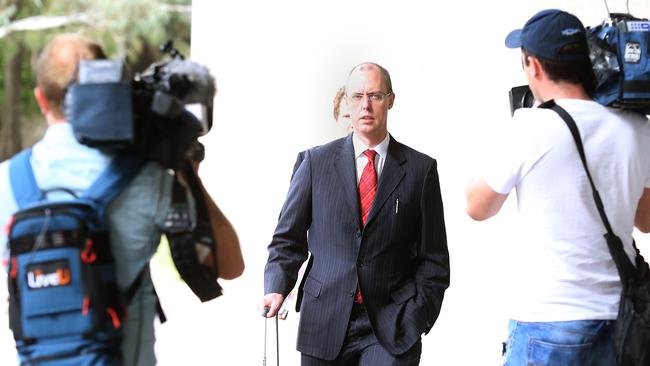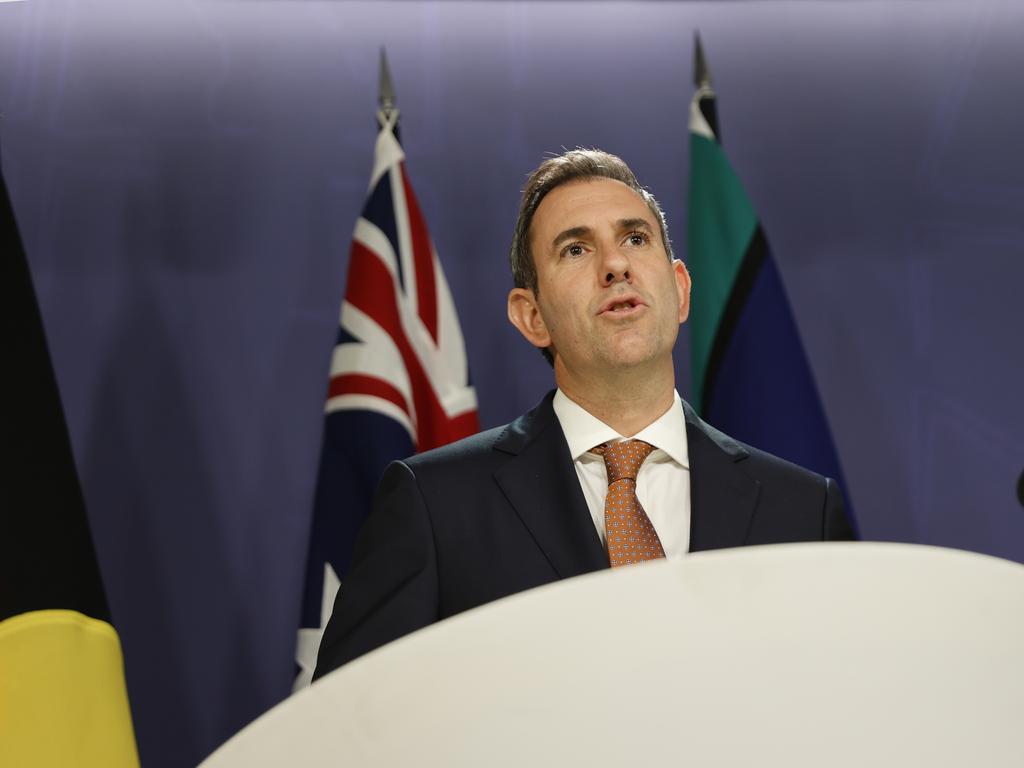
Accordingly, all those publicly advocating a yes vote need to make it clear which yes proposal they favour.
The Australian Football League is asking its clubs to state whether they are in favour of a yes vote, without spelling out to the clubs that there are two different and distinct proposals in the yes campaign.
It is sad that the AFL is asking its clubs to make this a difficult decision at a time when the Albanese government has just partly funded the new Hobart stadium.
Many will link the two events.
My regular readers will be aware of the stark differences in the two proposals that stand behind the yes case.
The first proposal is what, quite reasonably, the Aboriginal and Torres Strait Islander peoples believe will result from a yes vote.
I set this out in two commentaries under the headings, An Indigenous voice to parliament will end federal budgets as we know them and How business is getting it wrong on The Voice.
If the yes vote is successful then a fourth arm of government will be formed to join the parliament, the public service and the courts.
Exactly how that body will be constituted is not set out, but it could be very large given the multitudes of groupings.
This new arm is to be empowered “to make representations to the parliament and the executive government of the Commonwealth on matters relating to Aboriginal and Torres Strait Islander peoples”.
The indigenous people believe that those words mean that government departments and the parliament will be required to give due consideration to all their representations, although clearly there is no requirement that they be adopted.
To enable representations to the executive government, departments would need to share with the voice body decisions that are being considered, so representations can be made.
In my commentaries, I applied the complexities of that representation power to the budget.
Very clearly, while parliament would still be able to make decisions, the process of government decision-making would be greatly slowed and be much more expensive, which would impact the nation’s prosperity.
After my commentaries and those of others, Solicitor-General Stephen Donaghue issued an opinion which was totally different to that which the indigenous people believe is what the yes vote will deliver.
Donaghue claims that the amended Constitution “imposes no obligations of any kind upon the voice, the parliament or the executive government”.
He states that the amended Constitution would not “impose any enforceable obligation upon the parliament to consider representations from the voice”.
And the Constitution “would not impose any obligations upon the executive government … to consult with the voice prior to developing any policy or making any decision”.

The Solicitor-General’s interpretation of what a yes vote means is very different to from what the indigenous people think a yes vote means.
The High Court will determine whether the indigenous view of a yes vote or whether the Solicitor-General’s view of a yes vote is correct.
It’s High Court poker.
Among those organisations who favour a yes vote or are considering their positions are the state bar councils.
Barristers will be huge beneficiaries from the avalanche of court cases that will proceed as the two yes cases fight it out in the High Court.
If indigenous people or non-indigenous people lose, the defeated party will be very angry and understandably hold the view that they were badly misled.
Tensions are likely to rise, and AFL clubs should be prepared for this, particularly if they participate in the process.
A lot happened in the early days of Australia that we are not proud of, but we built a nation that attracted people from all around the world wanting to help build a better place to live.
But there is one incident that has a strange similarity with what is happening now.
Back around 1835 many people in the village we now call Melbourne believed their founder was John Batman and there was a push to call the settlement “Batmania”.
John Batman believed the indigenous people owned the land and a proposal was put together to buy it. But that proposal changed and what eventually was put in front of the indigenous people was different to what was originally envisaged.
They were duped in much the same way as 2023 indigenous people will feel duped if the Solicitor-General’s interpretation of the proposal turns out to be correct.
Of course, as it happened, Batman’s purchase of the land was overturned by the British rulers and was declared void.
I’m not in the business of forecasting the outcome of referendums, but in the republican proposal two possible outcomes were put on the table and the Australian people very understandably voted no.
We still have an opportunity to change the words to put forward a voice that is not high cost and is limited to matters that directly impact indigenous people.
But whatever we do, putting two proposals in the yes vote and then fighting it out in the High Court to see who wins is a recipe for disaster.






All those organisations and enterprises who are now considering making public their attitudes to the voice referendum need to understand that there are two separate proposals behind the yes case.